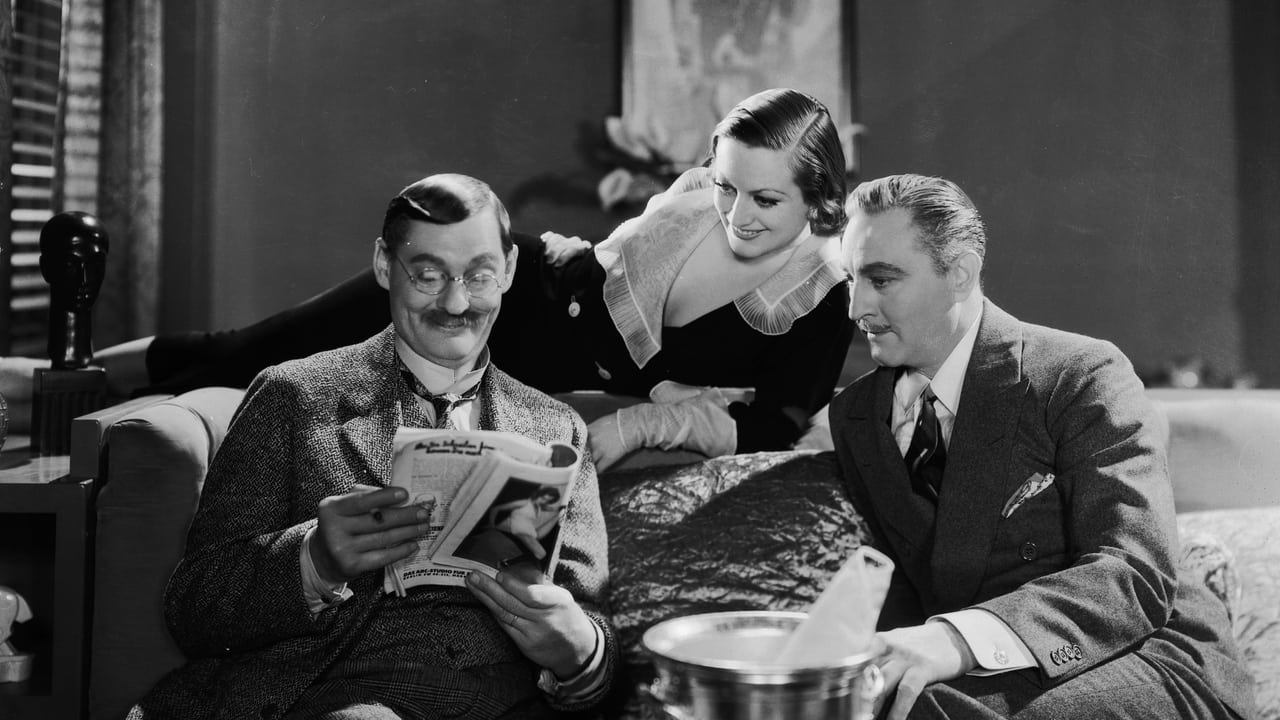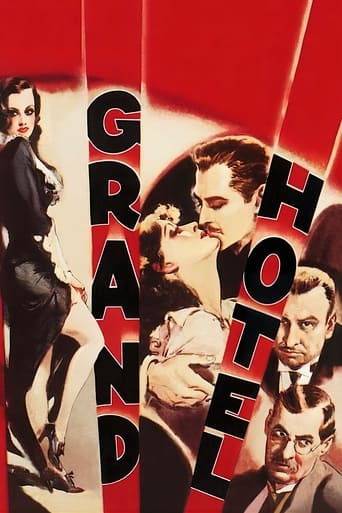

I cannot watch this movie anymore without hearing those lyrics of the title song from the 1990 Broadway musical. "People come, people go. Where there's life overflowing. Come begin in old Berlin. You're in the Grand Hotel!" The musical allowed the major characters to flow in for dramatic introductions, identified by the embittered partially blind doctor. "Nothing ever happens!", he says dramatically in both the movie and the musical, but you're hearing that from a man going through life with one eye shut. Lewis Stone, so wise as Judge Hardy, fails to convince in character. There's plenty happening in the most opulent hotel in all of 1930's Germany, a shell of itself after a world war, and at a turning point in it's history. Scary for many here, facing their mortality through their immorality.The two immoral characters here are nobleman (and a thief!) John Barrymore and sadistic businessman Wallace Beery. Dying clerk Lionel Barrymore is the most vulnerable, wanting one last fling with life, and finding more than he bargained for. Typist Joan Crawford gets a rare glimpse of heaven on Earth, and finds hell, exploited by Beery and finding supposed romance with John Barrymore. Her friendship with Lionel Barrymore is the one honest relationship in the film, outside of ballerina Greta Garbo and her devoted companion, Rafaela Ottiano. Authors of the musical were so taken by Ottiano that they named the character in the musical after her. Then there's hotel clerk Jean Hersholt, waiting for the news on his wife, in the hospital preparing to give birth. It's a minor part of the story, with the focus on Barrymore's (John that is...) seductions of both Crawford and Garbo. The two divas never cross paths or seem to be aware of the other's presence. Of the two, it's Crawford who is the most natural. Something in Garbo's performance indicates that she was pretty bored, wanting to be alone like her character, although through camera on her works its magic to fool the audience into thinking she's fully in character. Crawford shines in her energy, and her big eyes never more alluring. This has so much going for it that it is extremely difficult to find any fault. Truly a gem in pretty much every detail.
... View MoreWatching this last night, I was rather surprised to discover that I had never seen it before and also that it is really rather good. I know everybody says it is but I rather expected it to creak a bit, overstay its welcome, be a little too stagey but it is fine. Helped enormously by Joan Crawford who puts in the most sparkling performance and helps get the film off to a roaring start. I found the introduction of Greta Garbo less convincing but gradually warmed to her as she mellowed from the overwrought prima donna to love struck beauty. The Barrymore's, Lionel and John are fantastic and together with the rest of the cast help to keep this ever interesting and amusing film together. The script is perfect and well shared out amongst the fine array of talent, again helping to keep an even flow so that unlike other films of this period there is no plodding centre section and the ending is so sudden and splendid, one is inevitably left with a smile on the face. I can see myself watching this again.
... View MoreThe Grand Hotel in Berlin is the setting for the interconnected stories of the various characters. Baron Felix von Geigern (John Barrymore) lost his wealth over the years while still maintaining a facade by playing cards and thievery. He tries to steal flamboyant fragile Russian ballerina Grusinskaya (Greta Garbo)'s pearls. He befriends meek bookkeeper Otto Kringelein (Lionel Barrymore) trying to live it up at the hotel. German businessman Preysing (Wallace Beery) is trying to complete an important deal and hires stenographer Flaemmchen (Joan Crawford) although she's looking to be more than a typist. Otto is one of Preysing's insignificant workers who may hold the key to his deal.The stars are out in style in this hotel. Garbo is at her melodramatic best. Joan Crawford is the belle of the ball. The Barrymores are superb. Wallace Beery is his usual brute. I'm sure it was more compelling for its time. Many others have followed the formula of disparate people intermingling at a specific place. This is probably done better than most of its kind at its time. Two hours is a bit too long to keep up the pace.
... View MoreGarbo. Barrymore. Crawford. The starpower of this cast should be enough to guarantee a celluloid success. But it's the script that makes this film one of the best of its time or any time.The Grand Hotel is the setting and it can be seen to represent many things, but primarily it represents life. The lobby and common areas are representative of public life with its social pretensions and conventions. The private rooms are, of course, the private lives.In the course of one day, we glimpse various lives that are hanging in the balance and changed forever. At least in human terms. In objective terms, nothing much ever changes and the script plays out day after day, with minor revisions, regardless of the players.The acting in this film is wonderful. Yes, Garbo might overdramatize even the smallest gesture, but what else should we expect from her? And besides, she is playing the part of a prima ballerina who thrives on attention from her public. If one reads the trivia notes in IMDb for this film, where the petty concerns and rivalries of the major players are detailed, it adds another dimension to viewing "Grand Hotel". These actors were not so different from their characters--so involved with the slightest social slight.The story is a universal one that has been told many times since, but "Grand Hotel" may have told it best.
... View More